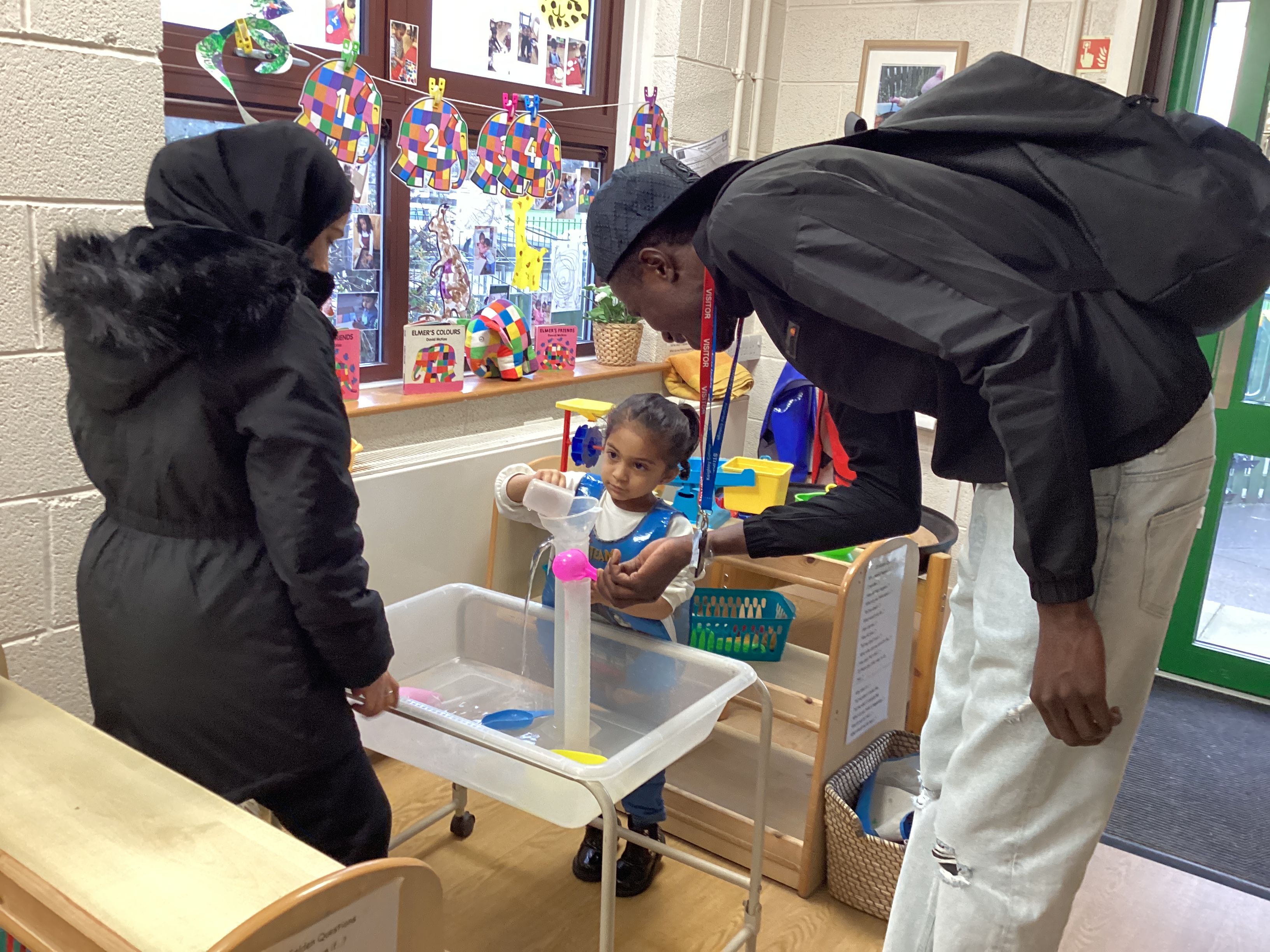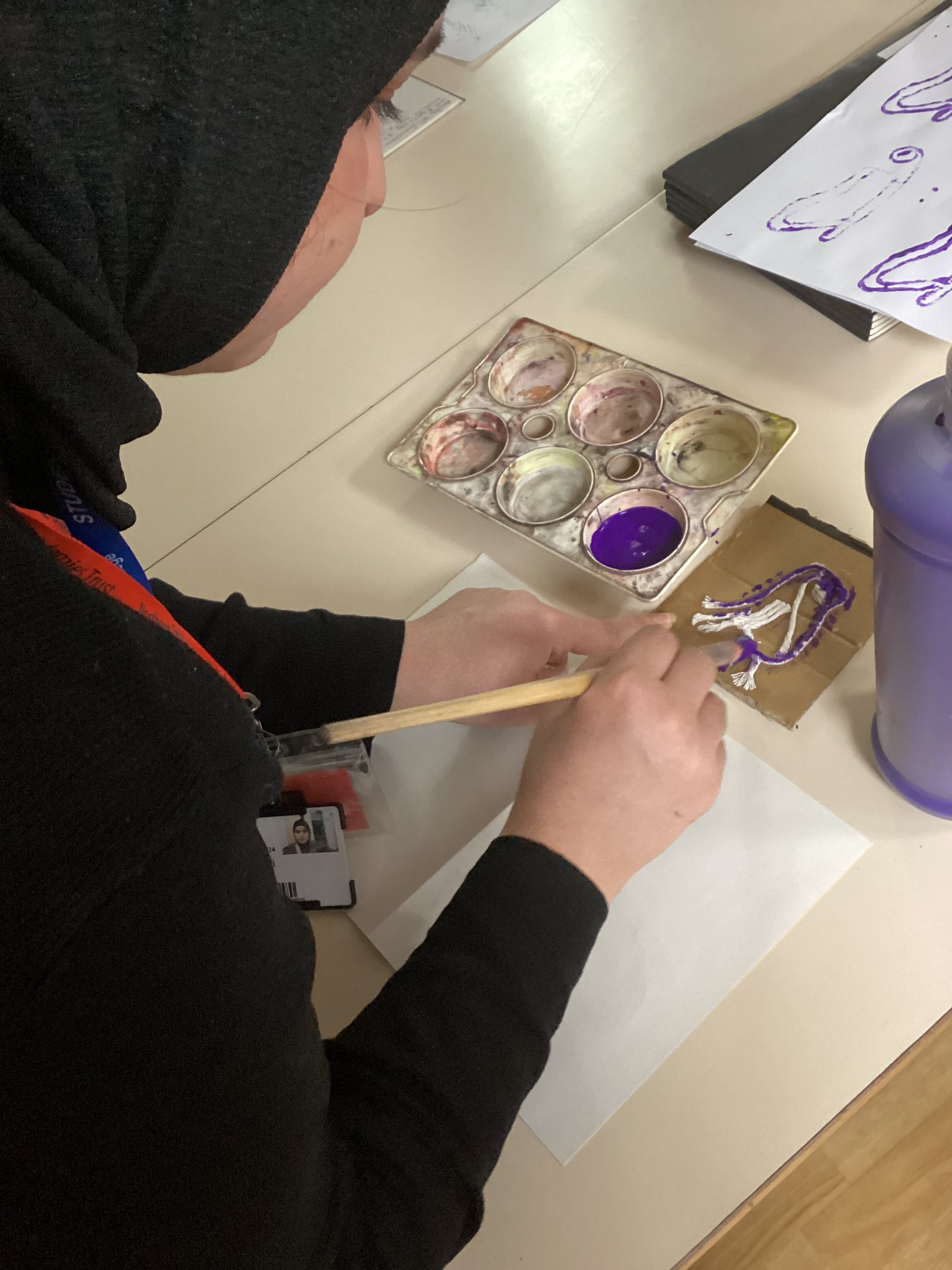Developing a trauma-informed approach to building connections through shared activities and story-telling

Refugee Integration Forum member Kate Hart, Schools and Colleges of Sanctuary Lead, shares the experience of bringing ESOL students and primary school children together.
Case Study
Listening to the stories and experiences of those seeking sanctuary is an invaluable way to develop empathy, understanding and realise our shared humanity. Last term, students and staff from a local awarded College of Sanctuary and a primary school working towards the accreditation brought together 24 young ESOL students from the college, most who are seeking sanctuary, with staff and children from the primary school.
The children at the school prepared sensitive questions starting with “if you don't mind me asking...?” The college students were also carefully prepared for the questions they might be asked and understood they didn’t have to answer questions that made them uncomfortable. The children enjoyed hearing the students’ stories and asked questions ranging from what they missed about their countries to what they wanted to be when they were older.
The college students found it interesting going into a school in the UK and drawing comparisons with schools in their home country. One college student reflected: “The Primary School was very different from my school in Afghanistan. We had to sit on the ground and didn't have any pens and paper for free. When it rained, the water poured in.” The students advised the children: “if you want something you have to work for it. I came here because it was safe and there are many opportunities.”
The college students were shown around the school, joined in with break time and met some of the younger pupils in nursery and pre-school. They joined in with singing, painting and art activities. One of the college teachers said: “It was a very good experience for our students to see how education works in the UK. I hope it will inspire some of our young students to go into teaching.”
A staff member at the primary school reflected: “for our children, the day highlighted the importance of being kind, respectful and understanding. It was a great experience to see our pupils’ making connections. We want our children well-equipped to be active, compassionate citizens who can contribute to making the world a better place. Meeting regularly with people from diverse backgrounds demonstrates our commitment to this endeavour.”
Shortly after the initial meeting, 15 of the children visited the college with some thank you cards they had made and took part in variety of activities. The college and school are planning to continue these meet-ups and have planned cooking sessions where both groups will learn about each other’s culinary heritage. As they continue to build connections through shared interests, pupils and students are able to focus on what they have in common as well as what they can learn from each other.
What are the key things that have been learned?
- Meeting people face-to-face is so valuable for developing empathy and understanding
- Building connections through shared interests – e.g. cooking, play, art is really valuable and focuses on what we have in common
- The questions/discussions between school pupils and college students had to be very carefully prepared and managed in order to be as trauma-informed as possible. College staff were particularly concerned about this.
To learn more about this case study or the Yorkshire and Humber Refugee Integration Forum, please contact Liz Maddocks at admin@migrationyorkshire.org.uk.



